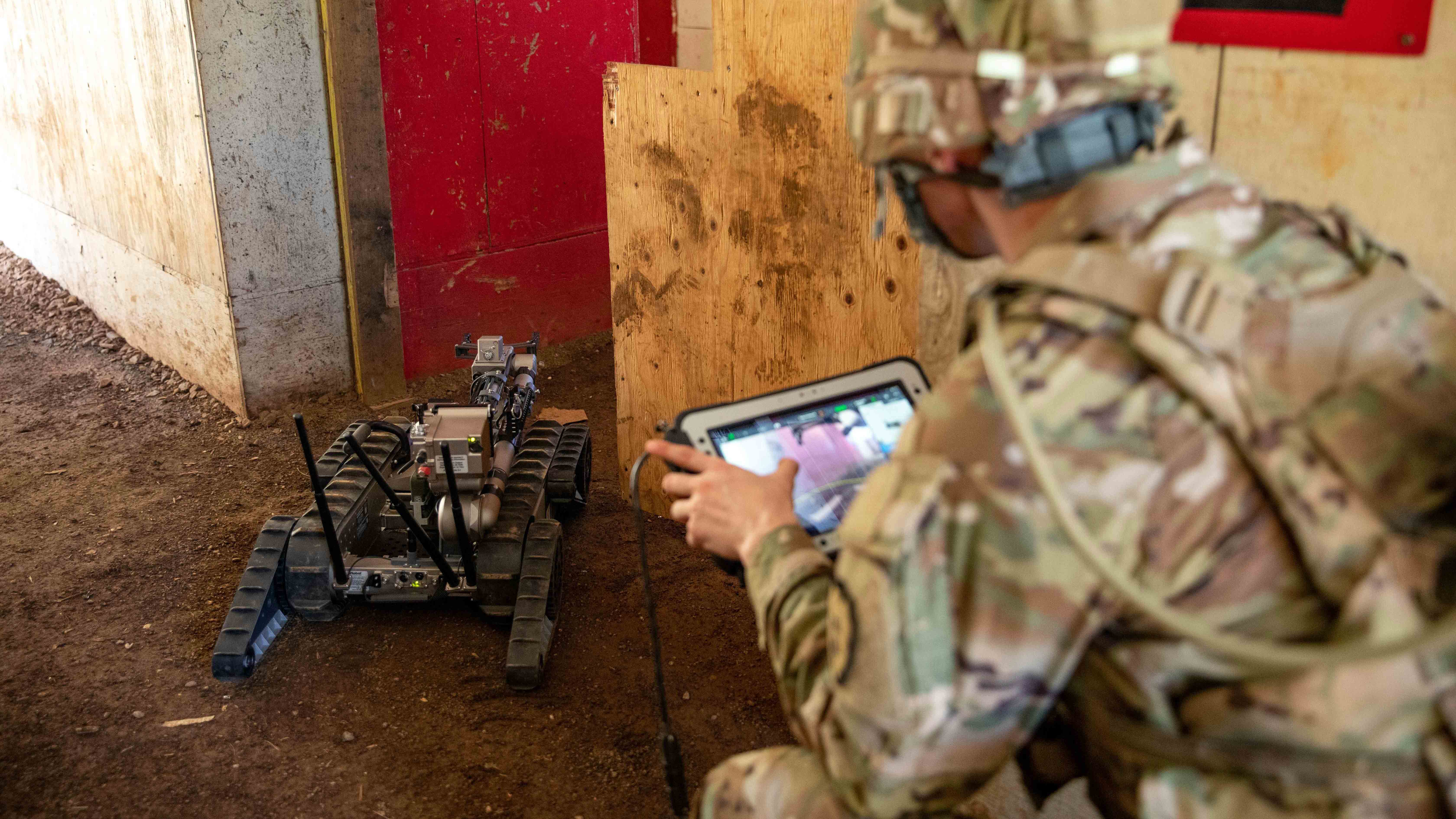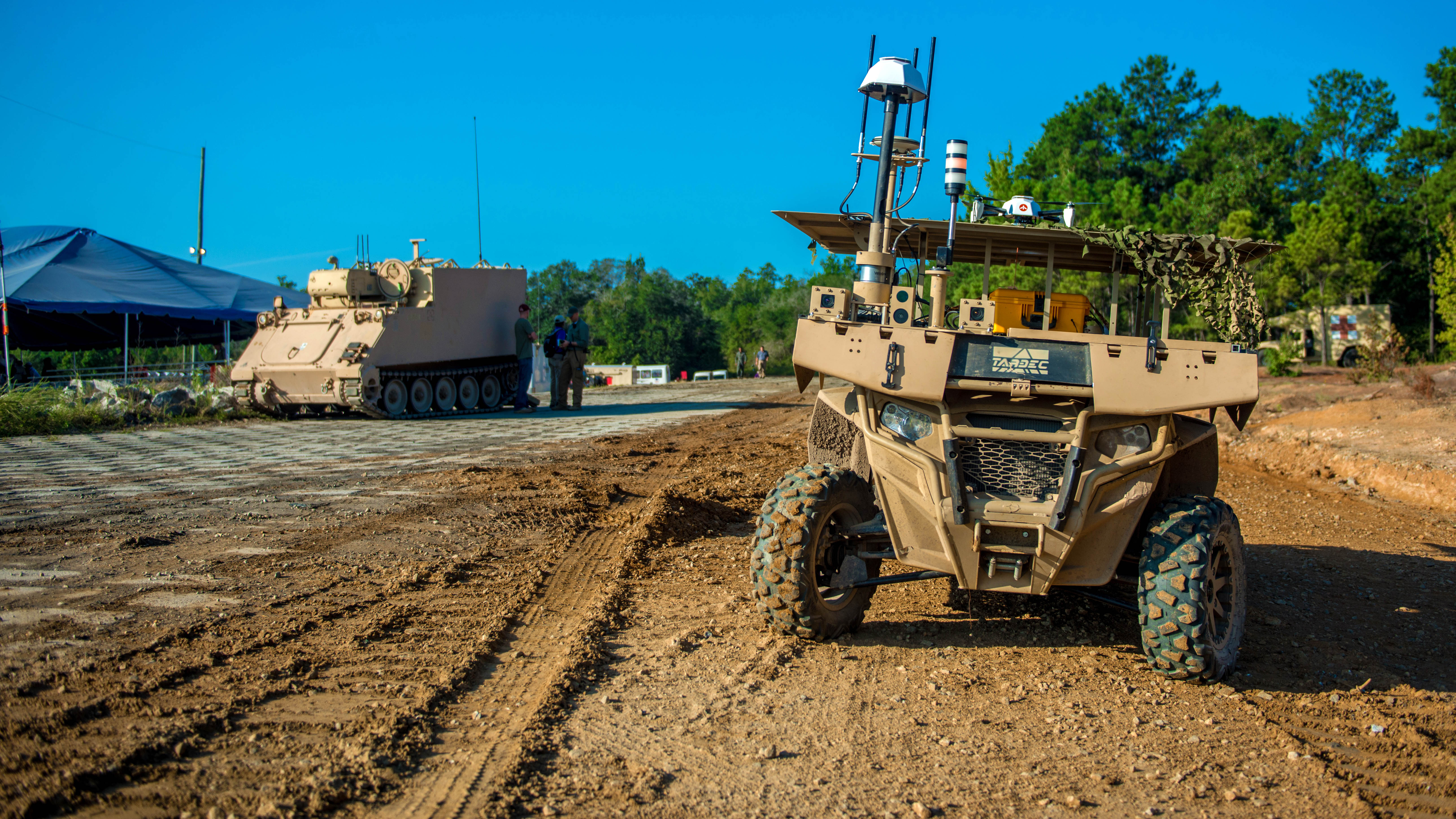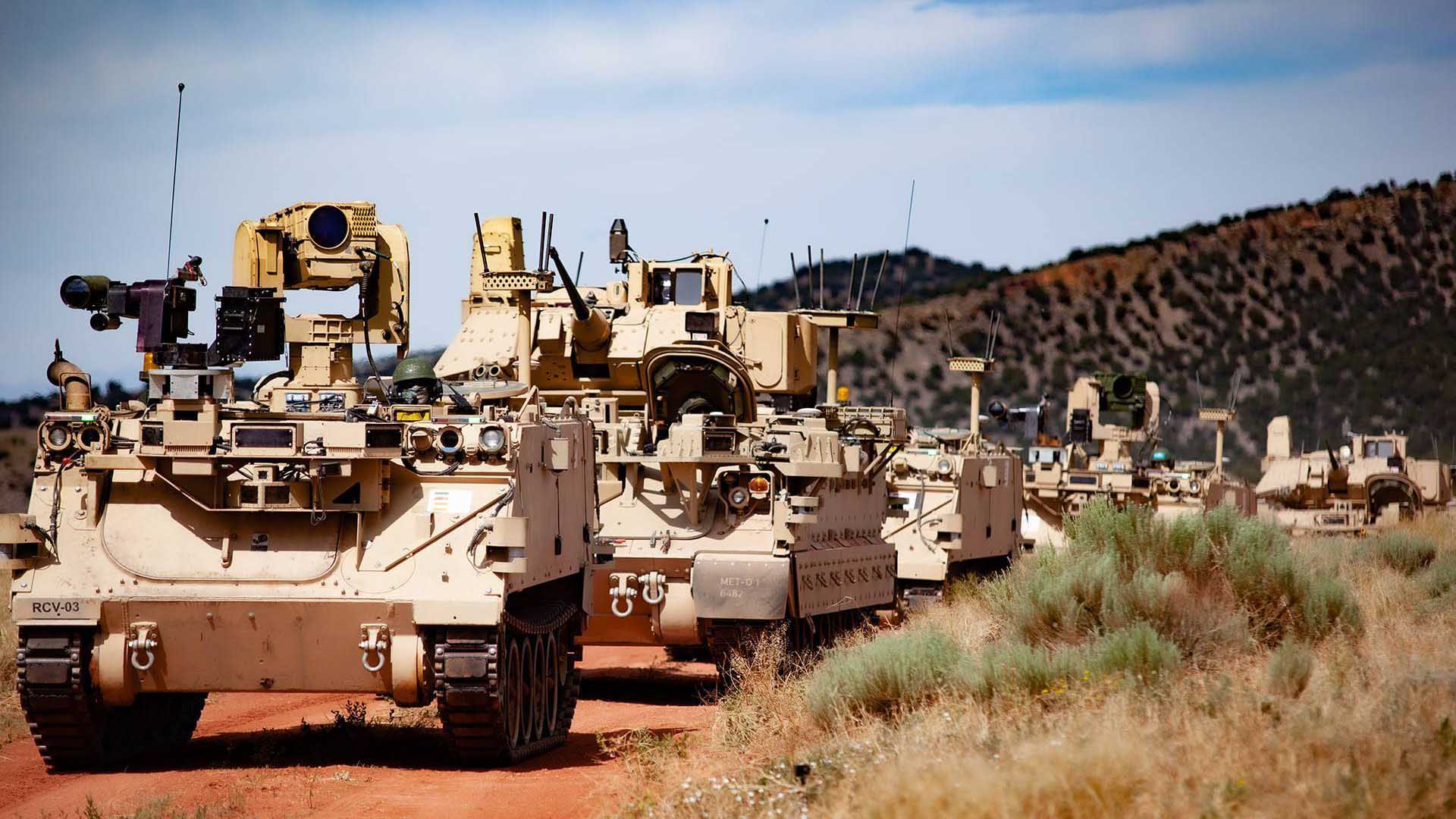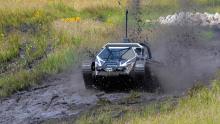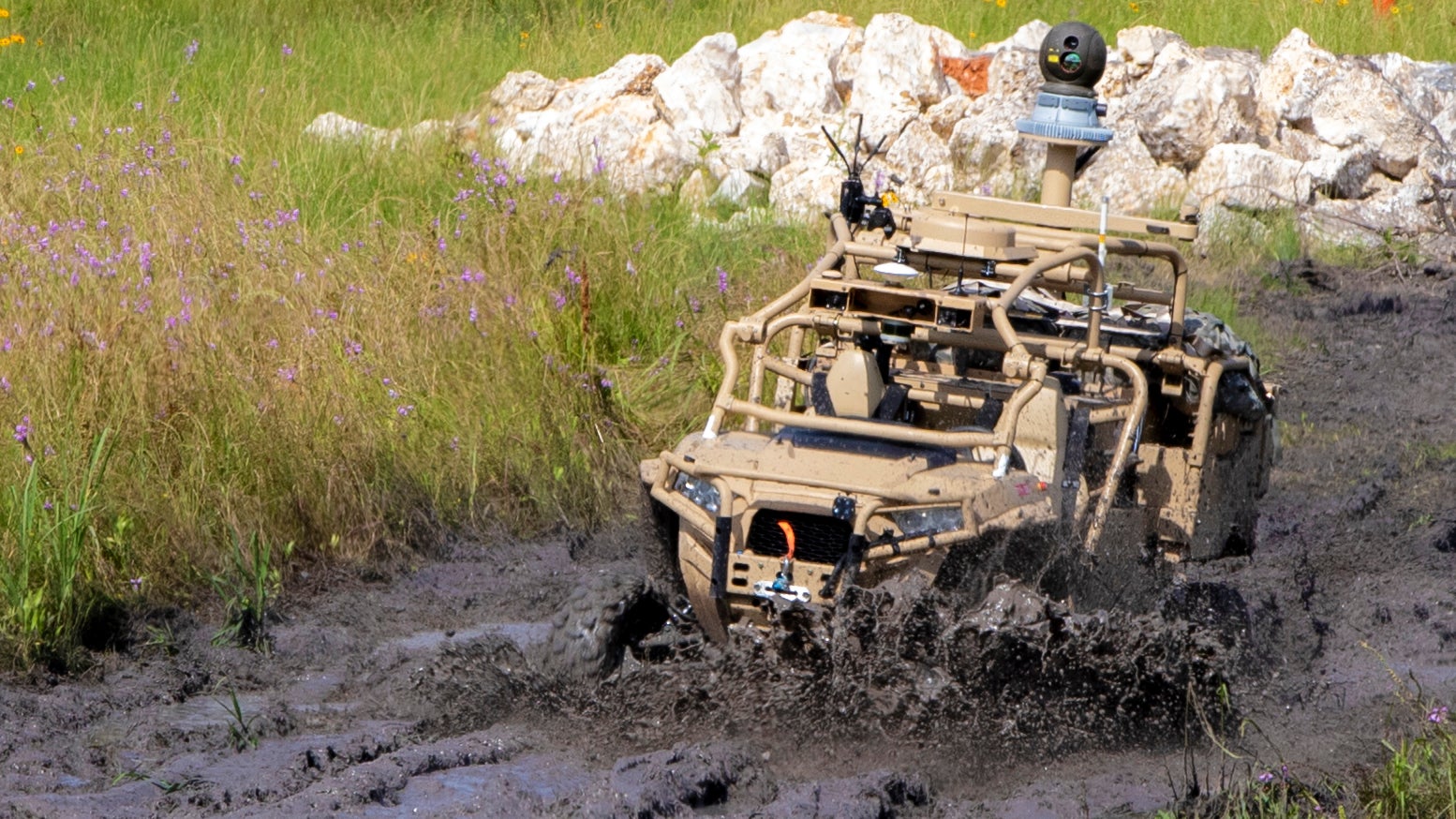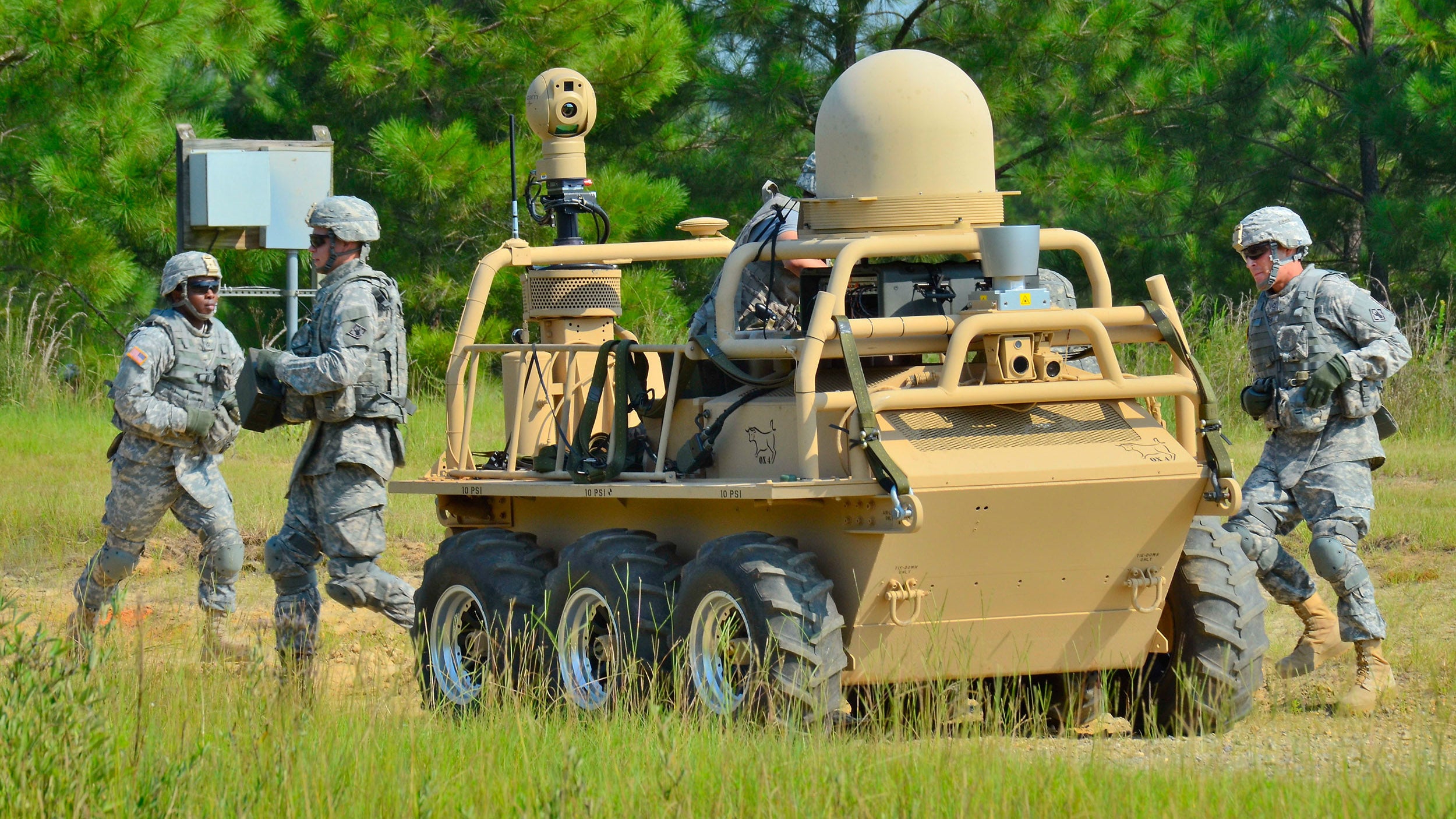Soldiers Team With Robots in Key Experiments
The Army is moving forward with efforts to integrate robotic vehicles and unmanned aerial systems with human operators.
One example is the robotic autonomous systems platoon, which the Army has tested at the National Training Center at Fort Irwin, California, and Fort Moore, Georgia, formerly known as Fort Benning.


